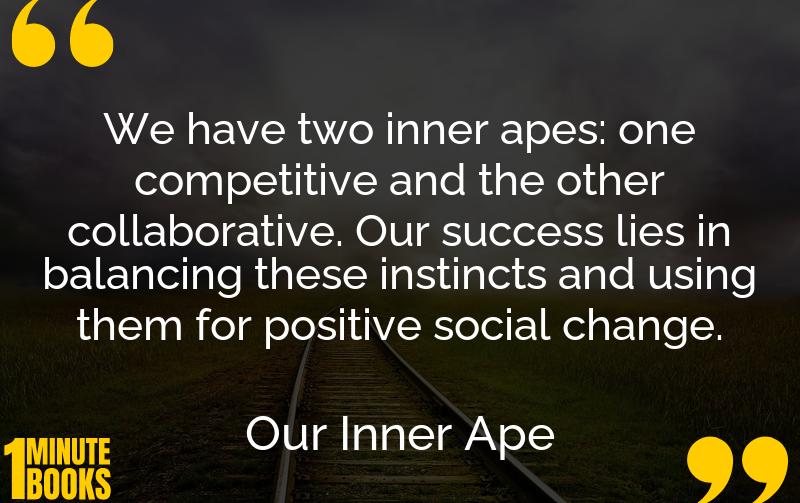
Frans de Waal’s ‘Our Inner Ape’ explores the duality in human nature, stemming from evolutionary traits shared with primates, like competition and empathy, and how these shape human behavior.
Main Lessons
- Human nature is a balance of competition and collaboration, inherited from our primate ancestors.
- Learning from bonobos, empathy and fairness are core traits we share with other primates.
- Dominance and social roles in primate societies teach us about human gender roles and power structures.
- Environmental factors significantly influence social structures and gender roles in primates.
- Bonobos offer a model for conflict resolution through empathy and social bonding.
- Chimpanzees demonstrate strong social hierarchies and alliances, shedding light on human social dynamics.
- Moral instincts, such as empathy and fairness, are present in both humans and other primates.
- Competitive behaviors are not exclusive to humans but form an essential part of our evolutionary background.
- Human societies, like bonobos, can benefit from shared sexual freedom and reduced competition.
- Maintaining social harmony and cohesion is as important in primate groups as it is in human communities.
- Understanding primate behaviors encourages us to adapt our instincts positively for societal benefits.








